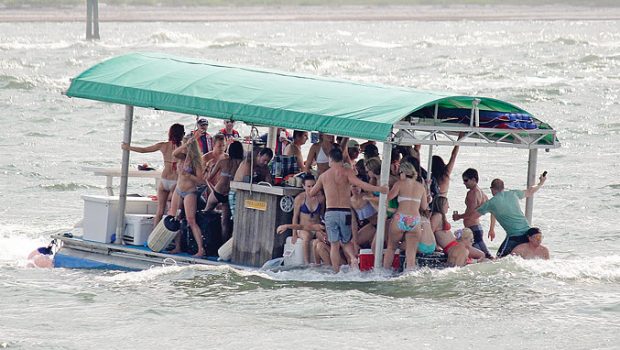Surviving Fourth of July on the Water
Published on July 2nd, 2019
Each year about three out of four recreational boat owners in the USA say they plan to enjoy the Fourth of July holiday aboard the family boat. With nearly 12 million registered vessels in the country, that could spell mayhem at launch ramps, marinas and popular anchorages, requiring extra skill, patience and courtesy.
The nation’s advocate for recreational boaters, Boat Owners Association of The United States, (BoatUS) says the congestion and nighttime operation requires vigilance. Here are seven safety tips to help boaters survive peak traffic days.
1. Educate: Boaters will host thousands of guests aboard their vessels this holiday period – many with no boating experience. Before you head out, give a short orientation to guests, not only about essential items, such as how to move about a moving vessel (with one hand always connected to the boat) or how use the head, but also show them how easy it is to use the VHF radio and safety gear, especially life jackets.
2. PFD: For that unexpected young guest without a life jacket, the non-profit BoatUS Foundation’s free Kids Life Jacket Loaner program gives boaters a chance to borrow child-size life jackets for the day, afternoon, or weekend. Nearly 600 locations across the U.S. ensure that there’s a location near you.
3. Don’t overload the boat: Be careful about adding extra passengers, coolers and gear, especially with small vessels that are more prone to swamping. It’s also important to keep everyone in the boat and avoid allowing passengers to ride or sit anywhere other than designated places while underway. Riding with legs over the side or on gunnels and seat backs is considered unsafe operation.
4. Impairment: According to the U.S. Coast Guard, alcohol use is the leading known contributing factor in fatal boating accidents. Wait to celebrate with alcohol until after you’ve safely returned to homeport for the night. Added to the effects of sun, wind and waves, alcohol lowers situational awareness and slows reaction times.
5. Patience: After viewing fireworks from the water and pulling up anchor, you may have the urge to rush home. Don’t. Slow down. Opt out of taking that tricky, shallow shortcut home. Be cautious and patient – especially at the launch ramp – and the odds for a safe return home increase.
6. Power: Avoid the two biggest mistakes. The TowBoatUS on-water towing fleet reports that battery jumps, as a result of running music or other accessories all day, and anchor-line entanglements that occur at crowded fireworks show anchorages, are common requests for on-water assistance over the holiday. Monitor your battery drain, go slow while hauling anchor line, and be super vigilant so you don’t run over someone else’s anchor line after the fireworks show ends. As a backstop, boaters can prepare for the holiday period by downloading the free BoatUS App to summon on-water assistance.
7. Visibility: The more lookouts you have aboard at night, the better. However, after dark, white lights in the cockpit or on deck can interfere with your crew’s night vision and their ability to see boating traffic or hazards. Turn off or dim the lighting, especially if using a cell phone, or consider using only red helm or accessory lights on the boat. Portable LED headlamps with red lenses can help your crew get around the boat and preserve their sight for spotting traffic.









 We’ll keep your information safe.
We’ll keep your information safe.